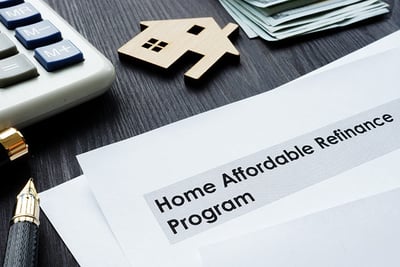How Do You Value Property With Significant Entitlement Risk?

Entitlement risks can present special problems when acquiring and developing land. It’s difficult to know what curveballs city council members and other local government agencies may throw at developers. However, they aren’t the only ones involved when it comes to entitlement risk.
Part 3: Using Tax Planning In an Effort to Increase Returns – Real Estate Exchanges

At Realized, we believe that tax planning in real estate is about seeking opportunities that can help ensure that the amount of money you make remains money you keep. In our final post in this series, we’ll cover an additional tactic to consider when seeking ways to increase your after-tax cash flow: leverage tax-deferred real estate exchanges.
Can You Buy a Multifamily Home with a VA Loan?

A multifamily residential property contains separate dwelling units for more than one household. The property has shared walls, floors, or ceilings but individual entries. It can include duplexes, triplexes, quads, apartments, condos, townhouses, and other attached housing. Multifamily housing can also include mixed-use developments, where the lower floors have retail, office, or commercial tenants and the higher levels contain housing units.
Is Sale Of Rental Property Subject To Net Investment Income Tax?

On January 1, 2013, 26 U.S. Code § 1411 - “Imposition of Tax” went into effect, to help fund the Affordable Care Act. What this meant, in plain English (and continues to mean), is that the net investment income tax, or NIIT, is assessed on certain net investment income of individuals, estates, and trusts that demonstrate income higher than the statutory threshold amounts.
Can You Do a HARP Loan on an Investment Property?

What is HARP? The U.S. Federal Housing Agency created the Home Affordable Refinance Program (known as HARP) in 2009 to help homeowners who owed more than the value of their homes. The main conditions for eligibility were that the mortgage had to have been purchased by either Fannie Mae or Freddie Mac (the two government-sponsored mortgage entities) before May 31, 2009. The borrower had to be in an "underwater" position. Also, the borrowers were required to be current on the payments, and the property had to be maintained in good condition. If the homeowner was delinquent or had walked away from the home, they did not qualify. This program terminated as of the end of 2018.
Part 2: Using Tax Planning In an Effort to Increase Returns – Increase Your Cost Basis

At Realized, we believe that tax planning in real estate is about seeking opportunities that can help ensure that the amount of money you make remains money you keep. In our second post in this series, we’ll cover an additional tactic to consider when seeking ways to increase your after tax-cash flow: increasing your cost basis.
Is a Delaware Statutory Trust (DST) a Security?

Delaware Statutory Trusts (DSTs) are complex financial investments that can provide individuals with access to ownership of commercial real estate properties that they would not be able to own on their own. Some DSTs own properties similar to those held by large institutional investors like pension funds, REITs, and insurance companies. DSTs are considered securities and are subject to regulation as such.
Ways to Leverage Equity in Investment Property

With time, the equity position in an investment property will generally increase. As a result, investors may seek opportunities to make use of the equity in their properties. There are a few ways to do this, and in this article, we’ll go through them.
What Are Qualified Intermediary Regulations, Responsibilities, and Obligations?

We discuss the topic of qualified intermediaries frequently at Realized Holdings, and for very good reason. The QI (also known as a facilitator or accommodator) can mean the difference between a successful 1031 exchange, and one that might fail and be challenged by the IRS. A reputable, experienced qualified intermediary must follow certain regulations, responsibilities, and obligations. To understand the activities of this entity requires an understanding of why it’s involved, in the first place.
Ways to Potentially Defer Capital Gains Tax on Stocks

Raise your hand, if you can relate to the following scenario.


